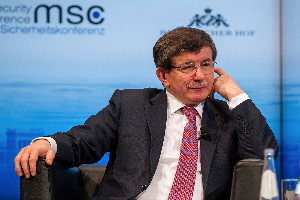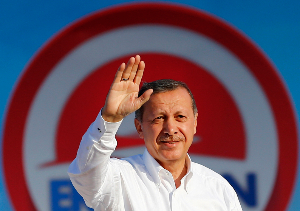What the Columnists Say
Ahmet İnsel in Cumhuriyet writes that the purpose of the attacks that were carried out against the premises of HDP in Adana and Mersin was to provoke HDP supporters and incite them take to the streets. Cengiz Çandar in Radikal writes that Turkey has lost its immunity to Salafism by acting as a sponsor of the Sunni radicals in Syria, in concert with Saudi Arabia. On the occasion of the death of Kenan Evren, the general who took power in the 1980 coup, Fatih Yaşlı in Yurt notes that Evren fathered today’s “New Turkey” by putting the current neoliberal-Islamic regime in place. Mümtazer Türköne in Zaman similarly observes that Evren’s regime, with its oppressive institutions, is still in place. He also notes that Evren was responsible not only for the coup but also for the wave of assassinations and massacres from 1978 onwards that preceded it and was used to legitimize it. İhsan Dağı on the Diken news site writes that if HDP crosses the threshold to parliament in the upcoming general election, it will restore the faith in competitive democracy, by demonstrating that change by normal ways is still possible in Turkey.

The HDP's Election Gambit and Turkey's Tolling Alarm Bells
By Gareth Jenkins (vol. 8, no. 2 of the Turkey Analyst)
On January 13, 2015, Selahattin Demirtaş, the co-chair of the pro-Kurdish Peoples’ Democratic Party (HDP), announced that the HDP will run as a party in the June 7, 2015 general election. If the HDP fails to cross the 10 per cent national electoral threshold not only will the country’s Kurds no longer have their own voice in parliament but nearly all of the seats in predominantly Kurdish areas are likely to go to the ruling Justice and Development Party (AKP), thus boosting President Recep Tayyip Erdoğan’s hopes of changing the constitution and introducing a presidential or semi-presidential system.

What the Columnists Say
Pro-government pundits have declared the advent of a “New Turkey” after the appointment of Ahmet Davutoğlu as the successor of Recep Tayyip Erdoğan as the leader of the ruling AKP. One commentator described the appointment as one of the most critical thresholds in the realization of the New Turkey project, which is described and celebrated as a comprehensive break with the past century of Turkish history. Dissident commentators warn that Davutoğlu’s vision of a world in which religiously based civilizations clash, and where Turkey aspires to lead the Islamic world, threatens to bring with it cataclysmic effects for Turkey. A more moderate commentator compared the “New Turkey” of Erdoğan to the sheikdom of Dubai.

Looking Strong but Fragile: A New AKP and a “New Turkey”
By Halil Karaveli (vol. 7, no. 15 of the Turkey Analyst)
The appointment of Ahmet Davutoglu to head the ruling Justice and Development Party (AKP) represents a doubling down on the party’s Sunni Islamic ideology. But ideology alone will not be sufficient to keep the AKP in power. The self-confident ideological rhetoric that proclaims the advent of a “New Turkey” masks what is in fact a fragile economic reality. Such rhetoric is not indefinitely going to be a substitute for the kind of material progress absent which the prospects for the “New Turkey” and its power-holders look bleak.

Turkey's Presidential Election: The Clouds on Erdogan's Horizon
By Gareth Jenkins (vol. 7, no. 14 of the Turkey Analyst)
Despite his convincing victory in the presidential elections on August 10, 2014, there appears little prospect of Prime Minister Recep Tayyip Erdoğan being able to replace Turkey’s parliamentary system with a presidential one and ruling the country singlehandedly for two successive five-year terms.








